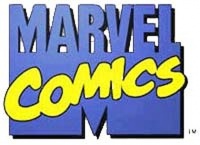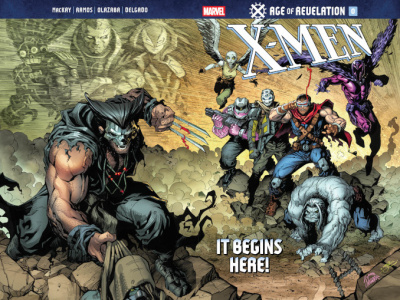
We talked to Marvel Publisher Dan Buckley (see 'Marvel Announces Buckley as Publisher for a bio') recently in a wide-ranging interview covering numerous topics of interest to retailers. In Part I, below, we discussed the state of the market for c
We'd like to get your sense of the market for c
I think it's going to be slightly up. Probably our biggest challenge is the loss of a publisher, so there's readjustment in what people are going to be buying. As a whole, the retailers that we c
How about by format -- c
The industry or Marvel?
The industry, although we're interested in Marvel as well. Specifically, the question is, 'Do you see c
Within the direct market, I think you'll see s
How are your digests doing?
We're very happy with it, and the feedback we've gotten has been very good so far. I think the package for the product has been appropriate and we're getting good feedback on the price point. We're very pleased with the feedback we've gotten fr
Is Marvel's trade paperback count up substantially this year vs. last year?
I believe it is (I wasn't here for most of last year). We're s
How many have you got in backlist now?
We have between three and four hundred titles.
That's significantly up over the last few years.
That's significantly up over five years ago, when I think it was like nine (laughs). I know when I left the business in '98 we weren't very aggressive in that market at all.
How about by channel? C
This year's been relatively flat for both. There was a tremendous growth rate for us in the book market the first couple of years that we got back in the collections business, just because we hadn't been there at all. So we saw a great deal of growth in that business which has helped everyone, just because more people are picking stuff up. It's been relatively flat fr
How about the newsstand market? It's pretty small these days, but Marvel may have done more things in that market the last few years than s
We look at it chain by chain. We evaluate, 'Is s
For the last few years, and especially the last two years there has been a very rapid increase in the number of pockets available in bookstores for c
The pockets have grown. I think we have the right title mix that we want in there now. If we go too far with a vast array of product, it's not going to do well in that market because people, even in the book market, are a little bit more attracted to brands that they're familiar with. There might be even more pockets available for DC, Marvel, and other c
So you're not seeing a pocket crunch.
No, not at all. The people that have taken in the c
Obviously we don't see all the numbers, but in the Bookscan numbers we do see it seemed as if Spider-Man 2 didn't drive as big an increase in sales of Spider-Man products as the first Spider-Man movie did. Part of that may be because there are Spider-Man products on lists other than the graphic novel list. What's your perspective on that question?
It's a little bit what you talked about. Also, the first Spider-Man movie did coincide a lot with the fact that we didn't have a lot of Spider-Man product out there. There wasn't much backlist. So there's a different fervor associated with putting that product out there. And it could be tied to release schedules -- the first movie didn't launch in July, it launched in May.
We've been relatively happy with the numbers, but you're right, the numbers haven't been quite as big. It has a little bit to do with the fact that people have been taking in a lot of Spider-Man over the last two years too, and getting caught up on it. It's not like, 'Oh, Spider-Man, that's cool, I'm going to go back out and get into this again.' There was a jumping-on point with the first movie where people have been steadily consuming, so I don't think it [Spider-Man 2] created quite the same spike.
For part II of our interview, see 'Interview with Marvel Publisher Dan Buckley, Part II').







